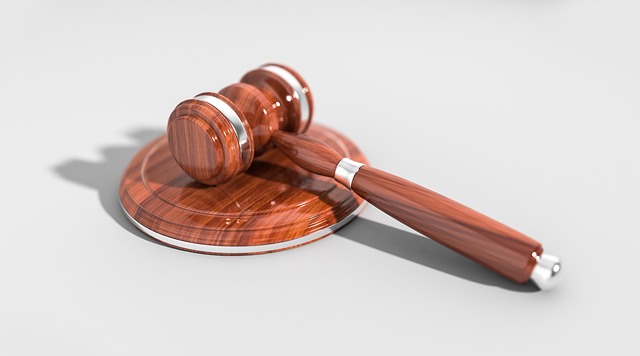Antitrust violation cases are pivotal for maintaining market fairness and economic system integrity, balancing defendants' rights—like due process and fairness guarantees—with consumer interests. In criminal cases, defendants enjoy crucial rights, such as the presumption of innocence and the right to legal counsel, ensuring a fair trial. Companies accused of antitrust violations strategically defend themselves by challenging interpretations, arguing for legitimate business purposes, and emphasizing minimal harm. These defenses aim to protect Defendants Rights in Criminal Cases while navigating complex legal frameworks that can set precedents for future market competition and ensure fairness.
“Antitrust violation cases pose complex challenges for both legal professionals and businesses. This article explores a critical aspect of corporate law, delving into the intricate world of antitrust prosecutions. We offer a comprehensive overview from a legal perspective, focusing on defendants’ rights in criminal proceedings. Understanding these rights is crucial when accused companies navigate strategies and defense mechanisms in such high-stakes cases. By examining these key elements, we aim to empower readers with insights into navigating antitrust violation cases effectively.”
- Understanding Antitrust Violation Cases: A Legal Perspective
- Defendants' Rights in Criminal Proceedings: A Comprehensive Look
- Strategies and Defense Mechanisms Employed by Accused Companies
Understanding Antitrust Violation Cases: A Legal Perspective

Antitrust violation cases are a critical aspect of corporate governance, focusing on maintaining fair competition in markets. From a legal perspective, these cases revolve around balancing the rights and responsibilities of defendants, ensuring due process while upholding the integrity of economic systems. Understanding these cases involves delving into complex legal frameworks that protect consumers and respective business interests. When an enterprise engages in anti-competitive practices like price fixing or market division, it enters a high-stakes arena with significant consequences for all stakeholders.
Defendants in such criminal cases have specific rights guaranteed by law to ensure fairness. This includes the right to be informed of the charges, to confront witnesses, and to present a defense, among others. As these cases often involve large corporations with deep pockets, they can significantly impact not just the business itself but also the philanthropic and political communities. Navigating these legal complexities is crucial, as the outcomes can set precedents for future practices, shaping the competitive landscape for all businesses operating within regulated sectors.
Defendants' Rights in Criminal Proceedings: A Comprehensive Look

In criminal proceedings involving antitrust violations, defendants enjoy certain rights that are fundamental to ensuring a fair and just trial. One of the primary rights is the presumption of innocence; every defendant is considered innocent until proven guilty beyond a reasonable doubt. This principle is crucial in high-stakes cases where powerful corporations or individuals face indictment for anti-competitive practices. The right to be represented by legal counsel is another cornerstone, allowing defendants to gather and present evidence for his clients effectively.
Additionally, defendants have the right to confront witnesses against them, ensuring that accusations are openly scrutinized. They can also challenge evidence and testimony, aiming to avoid indictment through strategic legal defense. The ability to appeal decisions made during trial further safeguards against potential wrongful convictions. These rights are vital in maintaining the integrity of the justice system, especially in complex antitrust cases where economic impact and public perception play significant roles.
Strategies and Defense Mechanisms Employed by Accused Companies

When faced with antitrust violation accusations, companies often employ a range of strategic defenses. A common approach involves challenging the interpretation of the alleged anti-competitive conduct, arguing that their actions were either not in violation of the law or that they served legitimate business purposes. Defendants’ rights in criminal cases extend to presenting such arguments, ensuring a fair trial, and mounting a robust defense against what might be perceived as vague or overly broad charges.
Another tactic is to emphasize the lack of significant harm caused by the alleged activities. Companies may assert that any anti-competitive effects were minimal, transient, or outweighed by the benefits to consumers and the overall market. Additionally, they could employ a white collar defense, presenting themselves as good corporate citizens who operate within legal boundaries but are now being unfairly targeted in a phenomenon that has swept across the country. This strategy aims for a complete dismissal of all charges, demonstrating that their behavior did not rise to the level of criminality as defined by antitrust laws.
In exploring antitrust violation cases, this article has delved into both the legal framework and the rights of defendants facing criminal proceedings. Understanding these aspects is crucial for navigating complex scenarios where companies are accused of anti-competitive practices. By examining strategies employed by accused entities, individuals can better appreciate the defense mechanisms available to them within the context of their rights as defendants in criminal cases. This knowledge underscores the importance of due process and fair representation, ensuring that justice is served while protecting the interests of all parties involved.






